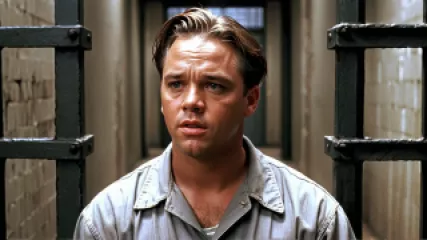5 Mental Health Myths Debunked Using Lessons from 'The Shawshank Redemption'
5 Mental Health Myths Debunked Using Lessons from 'The Shawshank Redemption'
Mental health is a complex and often misunderstood topic. Misconceptions and myths surrounding mental health can not only be harmful but also prevent individuals from seeking the help they need. In this article, we'll explore five common mental health myths and use lessons from the classic film 'The Shawshank Redemption' to debunk them, providing a fresh perspective on mental health awareness and the importance of seeking support.
Myth 1: Mental Health Issues are a Sign of Weakness
One of the most pervasive myths surrounding mental health is the idea that struggling with mental health issues is a sign of weakness. In 'The Shawshank Redemption,' the character of Andy Dufresne, wrongly imprisoned for a crime he did not commit, faces a constant battle with the harsh realities of prison life. Yet, throughout his ordeal, Andy demonstrates remarkable resilience and inner strength.
As Andy says, "I guess it comes down to a simple choice, really. Get busy living or get busy dying."The Shawshank Redemption
Facing mental health challenges is not a sign of weakness, but rather a testament to the human spirit's capacity for resilience and growth. Just as Andy refused to let the prison system break him, individuals dealing with mental health issues can draw on their own inner strength to overcome obstacles and thrive.
Myth 2: Mental Health Struggles are Permanent
Another common misconception is that mental health struggles are permanent and cannot be overcome. In 'The Shawshank Redemption,' Andy's unwavering determination to prove his innocence and eventually escape the prison walls serves as a powerful metaphor for the journey of mental health recovery.
As Andy reminds us, "Hope is a good thing, maybe the best of things, and no good thing ever dies."The Shawshank Redemption
Just as Andy never lost hope in his quest for freedom, individuals dealing with mental health challenges can find hope in the knowledge that recovery is possible. With the right support, resources, and a commitment to self-care, many people are able to manage and even overcome their mental health struggles, reclaiming their lives and finding a sense of purpose and fulfillment.
Myth 3: Mental Health Issues are Uncommon
It's a common misconception that mental health issues are rare or affect only a small portion of the population. However, the reality is quite different. In 'The Shawshank Redemption,' the prison setting serves as a microcosm of society, where a diverse range of characters grapple with their own emotional and psychological challenges.
As the character Red observes, "We're all doing time."The Shawshank Redemption
Similarly, mental health issues are far more prevalent than many people realize. According to the World Health Organization, mental health disorders affect an estimated 1 in 4 people globally at some point in their lives. By recognizing the widespread nature of these challenges, we can reduce the stigma and encourage more individuals to seek the support they need.
Myth 4: Seeking Help is a Sign of Failure
Another pervasive myth is the idea that seeking help for mental health issues is a sign of failure or weakness. In 'The Shawshank Redemption,' Andy's decision to reach out for support from his friend Red, a fellow prisoner, is a pivotal moment in his journey towards freedom.
As Andy says, "Get busy living or get busy dying."The Shawshank Redemption
Seeking help is not a sign of failure, but rather a courageous act of self-care and a commitment to personal growth. By reaching out to mental health professionals, support groups, or trusted loved ones, individuals can access the resources and guidance they need to manage their mental health challenges and improve their overall well-being.
Myth 5: Mental Health Struggles are Isolated Experiences
The final myth we'll explore is the idea that mental health struggles are isolated experiences. In 'The Shawshank Redemption,' the bond forged between Andy and his fellow inmates, particularly his friendship with Red, highlights the power of community and shared experiences in overcoming adversity.
As Red reflects, "I find I'm so excited, I can barely sit still or hold a thought in my head."The Shawshank Redemption
Mental health challenges may feel isolating, but the reality is that they are often shared experiences. By fostering a sense of community, understanding, and mutual support, individuals can find solace in the knowledge that they are not alone in their struggles. This can be a powerful catalyst for progress, as individuals draw strength from the shared experience and the realization that they are not defined by their mental health challenges.
Conclusion: Embracing Mental Health Awareness
Through the lessons we've learned from 'The Shawshank Redemption,' we've debunked five common mental health myths and gained a deeper understanding of the complexities and realities of mental health. By recognizing the strength and resilience inherent in confronting mental health challenges, acknowledging the widespread nature of these issues, and embracing the power of community and support, we can work towards a more compassionate and understanding society.
As we continue to navigate the truth about mental health myths, it's essential to remember that mental health awareness and counseling for mental health are vital steps in promoting mental health positivity and empowering individuals to get busy living, rather than get busy dying. By shattering these misconceptions and embracing the mental health myth busting lessons from 'The Shawshank Redemption,' we can create a world where seeking help is celebrated, and mental health is nurtured and celebrated as a fundamental aspect of our well-being.






